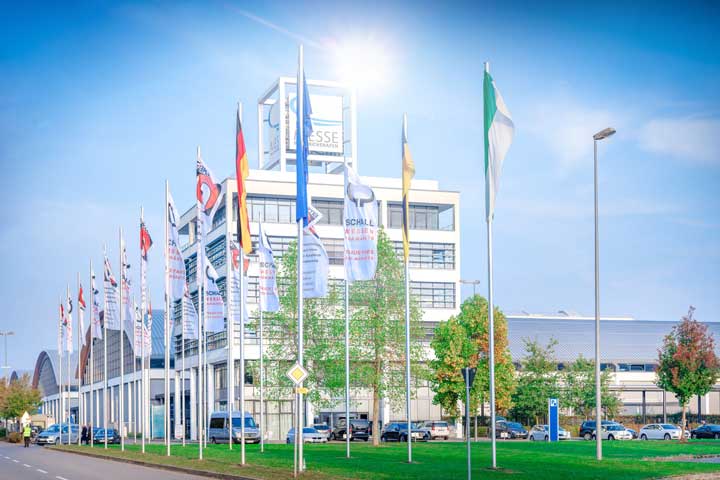Product novelty 27. July 2023
RecyColor - automated color control for recycling
1 / 5

Automated color control to a desired color value with RecyColor
2 / 5

Cascade setup with ColVisTec probes for use with RecyColor
3 / 5

InSpectro X – UV/Vis Inline Spectrometer
4 / 5

Reflection probe for use in extrusion (RPMP) on opaque polymer melts
5 / 5

Transmission probe for use in extrusion (TPMP) on transparent polymer melts
A new approach for automated color control in recycling (post consumer and post industrial). Based on inline UV/Vis measurements of the InSpectro X it is now possible to adjust recycling materials to a stable color value within seconds.
For this purpose, a cascade (two extruders) has been set up in a "closed loop" at the SKZ (Süddeutsche Kunsstoffzentrum) in Würzburg and fed with PP regrind (flakes, PCR) alternately with light and dark PP mixture.
Based on the input material, a desired target value for the color is specified. The aim is to produce a consistent quality as far as possible independent of the fluctuations of the input material (extreme fluctuations generated by changing from light to dark and back again to light PP mixture).
An InSpectro X2 (UV/Vis inline spectrometer) with two reflection probes was used, one for the detection of the input material in the first extruder, the second for the detection of the stable end product in the second extruder.
An algorithm is used to compensate the differences of the input material by precisely dosing the amount of colorant added.
As shown in the picture, the large variations of the input material (light and dark mixture alternating) are controlled to the selected target value (L*=62) without significant disturbances.
This product development is based on the inline UV/Vis spectrometer InSpectro X and the corresponding probes in reflection (RPMP) or transmission (TPMP). All products are designed for 24/7 use in production environments. The probes are specifically designed for the conditions of an extrusion line for temperatures up to 400 °C in the polymer melt and process pressures up to 250 bar.
For this purpose, a cascade (two extruders) has been set up in a "closed loop" at the SKZ (Süddeutsche Kunsstoffzentrum) in Würzburg and fed with PP regrind (flakes, PCR) alternately with light and dark PP mixture.
Based on the input material, a desired target value for the color is specified. The aim is to produce a consistent quality as far as possible independent of the fluctuations of the input material (extreme fluctuations generated by changing from light to dark and back again to light PP mixture).
An InSpectro X2 (UV/Vis inline spectrometer) with two reflection probes was used, one for the detection of the input material in the first extruder, the second for the detection of the stable end product in the second extruder.
An algorithm is used to compensate the differences of the input material by precisely dosing the amount of colorant added.
As shown in the picture, the large variations of the input material (light and dark mixture alternating) are controlled to the selected target value (L*=62) without significant disturbances.
This product development is based on the inline UV/Vis spectrometer InSpectro X and the corresponding probes in reflection (RPMP) or transmission (TPMP). All products are designed for 24/7 use in production environments. The probes are specifically designed for the conditions of an extrusion line for temperatures up to 400 °C in the polymer melt and process pressures up to 250 bar.

